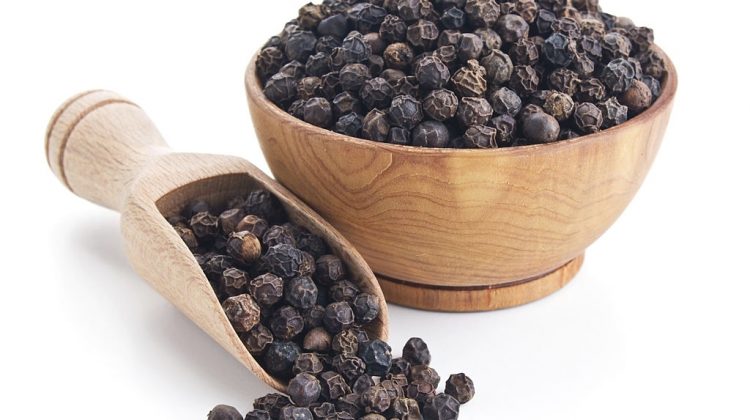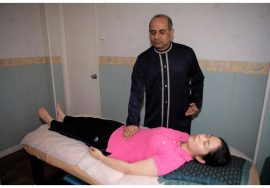
BLACK PEPPER
This is one of the most common spices/condiments often used in cooking all around the world. In Indian cooking it is used almost every day. Most people may not be aware that black pepper is used as one of the main supporting/complementary ingredients in about 80% of Ayurvedic medicines, preparations and formulas.
In Ayurveda, it is called “Marich” (pepper) or “Kali Mirch” (black pepper). The botanical/Latin name for black pepper is Piper Nigrum. Due to its medicinal value, black pepper is considered to be one of the primary spices to be used regularly in one’s daily diet.
Normally black pepper and white pepper (black pepper without skin) powder is used in cooking, but originally it is light green in colour and soft when it is fresh. Usually it is dried and then used for consumption.
Because of its pungent taste and heaty effect, black pepper is very useful and beneficial for Kapha oriented people and also for those who have imbalance of Kapha and accumulated Ama (toxic mucus) in their bodies. Vata predominant people can also benefit by taking it in moderation, whereas people with a strong/primary Pitta dosha should take this only occasionally.
Black pepper is one of the main ingredients in an Ayurvedic formula called “Trikatu” – “tri” means three and “katu” means bitter. The other two ingredients are: “Pippali” (Piper Longum) and “Shunthi” (dry ginger). This powder is used to enhance digestion and improve absorption. Although the initial/primary taste of all the ingredients in this mixture is “tikta” (pungent), the post-digestive taste is “katu” (bitter). Since in Ayurveda, the post-digestive effect of the consumable item is more important than the initial/ primary taste/effect, this formula is called “Trikatu” and not “Tritikta”.
That means black pepper’s primary/pre-digestive taste is pungent and post-digestive taste is bitter. Due to this, black pepper can help to get rid of unfriendly bacteria, burn toxins, and eliminate poisonous waste products from our body. Due to its strong effect, it enhances the production of digestive juices in our stomach and therefore can increase appetite, speed up digestion, improve absorption, and facilitate the better evacuation of waste matter.
In addition to its beneficial effects on the digestive system, black pepper is also useful and beneficial due to its curative and preventive effects in dry and wet cough, hoarseness, irritation in the throat, headache, worms in the stomach/digestive system, muscular pain, inflammation/swelling, water/fluid retention, paralysis, skin diseases, UTI, problems relating to reproductive system/organs (for both men and women), poor blood circulation, eyesight related problems, nose bleeds, toothache, etc.
In addition to the benefits derived at the physical level, consuming black pepper can also help at the mental level by strengthening the Pitta dosha and eliminating brain fog, thereby promoting clarity of thought and mental sharpness.
Black pepper is also used in combination with other spices/herbs for enhancing and absorbing their medicinal properties, e.g. it is used with turmeric to facilitate better absorption of curcuma, the active ingredient in turmeric which makes it so potent.
For regular usage, it can be used in every day cooking. As a medicine, it can be used/taken after mixing with specific “anupaan” (supporting items), depending upon the “Prakruti” (constitution) and “Vikruti” (imbalance) of the person. For example, Vata and Pitta oriented people should mix black pepper with clarified butter (ghee), butter, fresh cream or virgin coconut oil; while Kapha predominant individuals should take it with pure raw honey.
Similarly, for dry cough, it should be taken with clarified butter (ghee), butter, virgin coconut oil or fresh cream; and for wet cough it should be taken with honey.
In Ayurveda, “anupaan” (supporting item) is very significant. If “anupaan” is right, it enhances the medicinal properties and healing effects of the primary herb/spice, and if “anupaan” is not right, then we will not derive the maximum effect/benefit of ingesting that particular herb/spice.
Caution:- For your specific individual need, it is advisable to take all herbs/spices under the supervision of a qualified Ayurveda Practitioner.
To book an online appointment at Ayuryoga, with our Ayurveda/Yoga Expert Mr. Vinod Sharma Hong Kong please click here.












